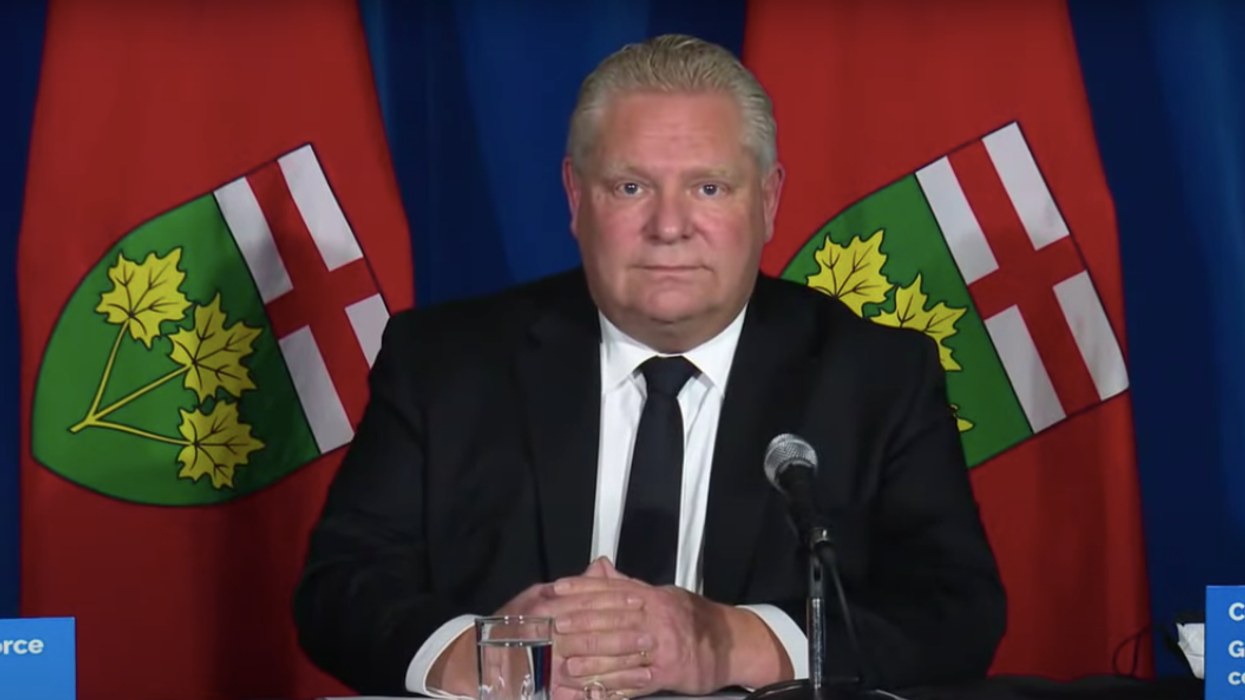Everything You Need To Know About The Ontario COVID-19 Vaccine Rollout Plan
Today, Premier Doug Ford provided new details regarding the Ontario COVID-19 vaccine rollout.
Joined by Health Minister Christine Elliot, Ontario Solicitor General Sylvia Jones, and General Rick Hillier, chair of Ontario's COVID-19 Vaccine Distribution Task Force, Ford told Ontarians that they could expect the first shipment of vaccines to arrive in Ontario as early as next week.
Hillier spoke on how long it would take to distribute the first dose of vaccines, how they would start to vaccinate people in long-term care homes, and how the provincial government has prepped for the roll-out.
We knew that Ontarians would have a lot of questions when it came to such a large-scale logistical undertaking. So, we took to Instagram to crowdsource your questions.
Editor's Choice: #VoteFordOut2022 Is Trending On Twitter & Local MPPs Are Not Holding Back
When will I get the vaccine?
Ontario could see vaccines as early as next week, says Ford.
Once the vaccines are approved, the Ontario government will roll them out in three phases.
The first phase will last two to three months and focus on long-term care and retirement home residents, and the staff who provide care to those groups.
Health-care workers, including hospital workers, staff who work or study in hospitals, adults in Indigenous communities, including remote communities where the risk of transmission is high, and adult recipients of chronic home health care will all be vaccinated in the first few months as well.
The second phase will start around April and will last approximately six to nine months, says Hillier.
"That's when the bulk of the vaccines will start to arrive," he says, "That's when anyone who wants a COVID-19 vaccine will get it."
The third phase will focus on establishing the vaccine program and allowing anyone who missed the vaccine the first time around to get it. Hillier called this phase a "steady state."
Who can get it?
The first COVID-19 vaccines are expected to be available for non-pregnant adults over the age of 18 years old only.
Will it be mandatory?
Both Premier Doug Ford and Health Minister Christine Elliott have maintained that the vaccine will not be mandatory.
However, if you refuse the vaccine, you may be faced with additional restrictions.
When can students get the vaccine?
That depends! The majority of students will likely receive the vaccine during the second phase, along with the majority of the Ontarian population.
However, if you are a student who works in a healthcare setting or lives in a high-risk rural setting, you may able to receive it during the first phase.
Could there be side effects from the vaccine?
Common side-effects should be identified within the first day or so, reports CTV.
“There are certain rare vaccine side effects that can occur two to four weeks after vaccination. They’re not very common at all,” infectious disease expert Isaac Bogoch told CTV.
Early studies suggest that the Moderna and Pfizer vaccines do not result in notable side effects.
